I have configured a multicore solr cloud.
Created a collection with 2 shrads and no replication. 
Through the solr UI 192.168.1.56:8983, I am able to get results to the query.
I want to do the same with pysolr, so tried running following:
import pysolr
zookeeper = pysolr.ZooKeeper("192.168.1.56:2181,192.168.1.55:2182")
solr = pysolr.SolrCloud(zookeeper, "random_collection")
the last line is not able to find the collection even though its there. Below is a error trace:
---------------------------------------------------------------------------
SolrError Traceback (most recent call last)
<ipython-input-43-9f03eca3b645> in <module>()
----> 1 solr = pysolr.SolrCloud(zookeeper, "patent_colllection")
/usr/local/lib/python2.7/dist-packages/pysolr.pyc in __init__(self, zookeeper, collection, decoder, timeout, retry_timeout, *args, **kwargs)
1176
1177 def __init__(self, zookeeper, collection, decoder=None, timeout=60, retry_timeout=0.2, *args, **kwargs):
-> 1178 url = zookeeper.getRandomURL(collection)
1179
1180 super(SolrCloud, self).__init__(url, decoder=decoder, timeout=timeout, *args, **kwargs)
/usr/local/lib/python2.7/dist-packages/pysolr.pyc in getRandomURL(self, collname, only_leader)
1315
1316 def getRandomURL(self, collname, only_leader=False):
-> 1317 hosts = self.getHosts(collname, only_leader=only_leader)
1318 if not hosts:
1319 raise SolrError('ZooKeeper returned no active shards!')
/usr/local/lib/python2.7/dist-packages/pysolr.pyc in getHosts(self, collname, only_leader, seen_aliases)
1281 hosts = []
1282 if collname not in self.collections:
-> 1283 raise SolrError("Unknown collection: %s", collname)
1284 collection = self.collections[collname]
1285 shards = collection[ZooKeeper.SHARDS]
SolrError: (u'Unknown collection: %s', 'random_collection')
Solr version is 6.6.2 and zookeeper version is 3.4.10
How to create a connection to solr cloud collection?